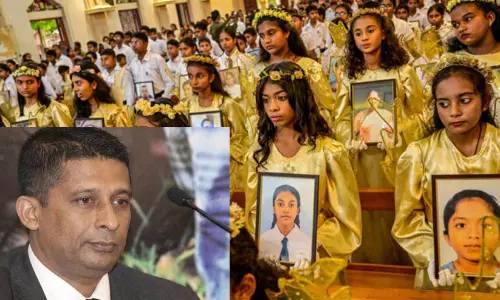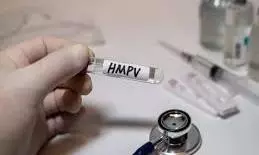
HMPV not a new threat, majority of Indians immune: experts reassure
text_fieldsHealth experts have emphasised that the Human Metapneumovirus (HMPV), recently detected in three cases across India, is not a new virus and that most Indians are already immune to it.
The cases, reported in Bengaluru and Ahmedabad, involve infants and a toddler, with all patients showing signs of recovery.
HMPV, a respiratory virus first identified in 2001, belongs to the Pneumoviridae family alongside the Respiratory Syncytial Virus (RSV). The virus typically causes symptoms similar to the common cold, such as cough, fever, nasal congestion, and shortness of breath. Dr. Harshal R. Salve of AIIMS, New Delhi, noted that severe disease due to HMPV is rare, as the virus has long been part of India's circulating flu strains.
“It’s not a cause for panic,” said Dr. Salve. “The majority of the population has developed immunity over time.”
Two cases from Bengaluru - a three-month-old girl and an eight-month-old boy - were identified during routine surveillance by the Indian Council of Medical Research (ICMR). Both infants had a history of bronchopneumonia, a lung infection affecting the bronchi and alveoli. While the girl has been discharged, the boy is reportedly recovering.
In Ahmedabad, a two-year-old child was admitted with symptoms of cold and cough. The child, who had no travel history, is in stable condition, according to civic officials.
Experts reassured the public that HMPV’s presence in India is neither unusual nor alarming. Dr. Rajeev Jayadevan, Chair of the Kerala State IMA Research Cell, explained that HMPV is a globally recognised cause of the common cold and does not warrant extensive testing unless severe symptoms arise.
“There is no evidence linking these cases to the HMPV outbreak in China, which involves a new variant,” said Karnataka Health Minister Dinesh Gundu Rao. “The government is still investigating whether this is a novel strain.”
The government has issued precautionary guidelines, including covering the mouth and nose while coughing or sneezing, frequent handwashing, and avoiding public places during illness.
Indian pulmonologist and epidemiologist Dr. Lancelot Pinto stressed the importance of genome sequencing to confirm whether the current cases involve a new variant. However, he noted that similar detections of HMPV have occurred worldwide without indicating a significant health threat.
While vigilance is necessary, experts unanimously agree that HMPV poses no immediate cause for alarm, as it continues to behave like other common respiratory viruses.























